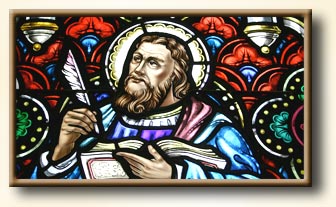|
Fifty days after Easter, Christians celebrate a day called by several different names. Pentecost is its true name, meaning the fiftieth day. But in Anglicanism it has more usually been called Whitsunday. This originated from the white garments worn by the newly baptized on this day. Baptisms were popular and frequent on this day, more so than on Easter, because the climate in England and other northern countries made it a more suitable time for baptism than the earlier and colder Easter Day.
Pentecost had long been a Jewish festival, at time of Thanksgiving for the wheat harvest. Appropriately enough, it had also commemorated the giving of the Law to Moses, and thus was in effect the birthday of the Jewish Church. This made it easy to transform it into a kind of birthday of the Christian Church.
What happened on Pentecost? The story is simple, powerful and inspiring. Jesus’ followers had all gathered together for worship. Suddenly they were aware of a sound described as “of a rushing mighty wind”. Startled, they all looked up and saw “cloven tongues” or flames as of fire resting upon each head. The narrator saw this as the very baptism which John the Baptizer had foretold. Filled with the Holy Ghost, those present began to tell the Gospel story in a great diversity of languages, emphasizing the universal character of the Christian gospel.
Thus, in a sense, the Church began. Thus were fulfilled in a dramatic and public way the many promises of Christ that the Holy Ghost would be sent to comfort, to teach, to inspire and to strengthen. Thus was the Church suddenly moved to realize its great objective of carrying the Gospel to all men, to Gentile as well as Jew. It was Milestone One on the long road of the Church’s development and progress.
Whitsunday is one of the oldest and most continuous of Christian celebrations. In a sense, it caps the celebration of Easter. On this day, fifty days after the apocalyptic events of Easter, the Resurrection took on meaning, the Church came alive, the Holy Ghost gave tangible evidence of His deityship with the Father and the Son. It is no wonder then, that this day of Pentecost has become one of the major celebrations of the Christian year, ranking with Easter, Ascension and Christmas in importance. That is why the Church has long expected every member to receive the Holy Communion on this day, and what the Church expects in this case is certainly no more than what every faithful follower of Christ should fervently wish to do.
|



